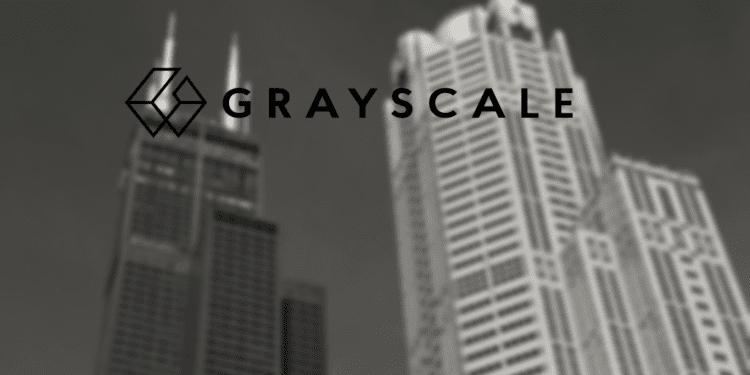Grayscale Investment LLC has accused the Securities and Exchange Commission (SEC) of being excessively harsh on bitcoin trading.
This case traces back to June 29, 2022, when the New York Stock Exchange proposed the conversion of Grayscale’s $15 billion bitcoin investment trust into an exchange-traded fund (ETF). The proposal, however, did not go through, as the SEC rejected it. The case was controversial since the regulator had previously approved ETFs based on bitcoin futures.
Grayscale is the most prominent digital asset management firm worldwide, recording $26.4 billion in assets under management by March 2022. Worth noting also the federal appellate courts are the ones that handle challenges to the final SEC orders, not trial courts.
Grayscale takes the SEC to the federal appellate courts
According to the report, digital asset manager Grayscale filed its opening brief against the SEC on Tuesday, October 11, challenging the Commission’s decision to deny Grayscale’s proposal to convert the Grayscale Bitcoin Trust (GBTC) to a spot Bitcoin exchange-traded fund (ETF). The case was filed in the United States Courts of Appeals in the District of Columbia Circuit. The brief claims: “The SEC’s knockback is “arbitrary, capricious and discriminatory.”
From Grayscale’s argument, the regulator treats spot Bitcoin (BTC) exchange-traded products (ETPs) with extraordinary harshness and is doing this “over its legal mandate.”
The asset manager told the D.C. Circuit that its bitcoin trust is just as susceptible to fraud and manipulation as the exchange-traded bitcoin futures funds, noting that the SEC had approved the latter in the past. Citing Grayscale chief legal officer Craig Salm:
“Bitcoin spot prices and bitcoin futures are subject to the same fraud risk that has historically worried the SEC. So, logically speaking, if you are okay with one, you must also be okay with the other because you otherwise would be arbitrary.”
It is imperative to note that Grayscale’s bitcoin trust is based on an index of spot, or instantaneous, bitcoin trading prices. It is also worth noting that the bitcoin funds ETF approved by the SEC rely on nearly identical bitcoin trading price indexes.
According to Grayscale, the SEC blocked a proposal to enhance security and simplicity for investors to access crypto. According to the asset manager, this was the ‘only reasonable conclusion’ from the regulator’s move to deny the proposal.
Reference to special harshness
According to Grayscale’s legal representatives at Munger, Tolles & Olson, bitcoin futures and spot bitcoin prices are founded atop the same foundational spot markets for BTC. According to the legal reps, the SEC’s refusal to approve an ETF that references actual bitcoin, instead of bitcoin futures contracts, indicates ‘extraordinary harshness based on the regulator’s opinion about bitcoin’s merit vis-à-vis other investment forms. In their words:
“Although Bitcoin may be a relatively new asset, the legal issue here is straightforward. The Commission has violated the APA’s most basic requirements by failing to justify its vastly different treatment of Bitcoin Futures ETPs and spot Bitcoin ETPs.”
Grayscale also complained that the Commission’s “significant-market test” to determine whether an exchange’s application to list an ETP is “tailored to prevent fraud and manipulative actions” is flawed, highlighting that the SEC has set the bar so high for industry players to reach.
While the SEC did not make a direct response to Grayscale’s filing, the Commission explained:
“Our decision to reject Grayscale’s proposal for a spot bitcoin ETF should not be seen as a judgment on the considerable perks of bitcoin and bitcoin futures contracts. Neither should it be viewed as an assessment of whether bitcoin or the whole blockchain technology has utility or value as an innovation or an investment.”
According to Grayscale, the Commission should submit its brief by November 9, 2022, after which the asset manager will submit a reply brief on November 30. The two parties will then offer a final brief by December 21.














